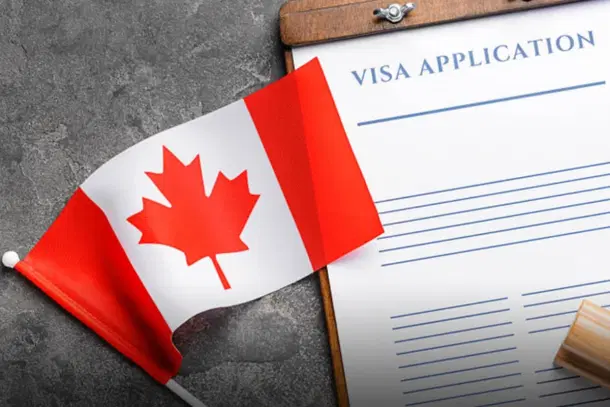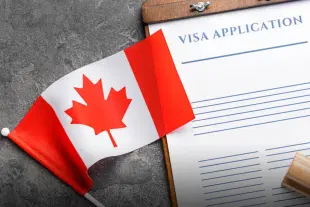News Brief
Canada Ends Fast-Track Study Visa Programme, Major Setback For Indian Students Amid Diplomatic Tensions
Vansh Gupta
Nov 09, 2024, 03:39 PM | Updated 03:39 PM IST
Save & read from anywhere!
Bookmark stories for easy access on any device or the Swarajya app.


In a significant policy change, Canada abruptly terminated its popular Student Direct Stream (SDS) programme, effective from Friday (8 November).
This decision ends the expedited visa processing route that has helped thousands of international students, particularly from India, quickly secure study permits.
Canada's decision comes amid ongoing diplomatic tensions with India that began last year after Canadian PM Justin Trudeau alleged Indian government's involvement in Killing of a Khalistani terrorist in Surrey.
India rejected the allegations, calling them "absurd" and "politically motivated".
The diplomatic tensions escalated further in October this year after Canadian police named Indian diplomats in Canada as persons of interest in a Khalistani terrorist's killing.
In response, India recalled its ambassador and other diplomats, and expelled six Canadian diplomats.
Launched by Immigration, Refugees and Citizenship Canada (IRCC) in 2018, the SDS aimed to streamline the visa process for students from 14 countries, including India, China, and the Philippines.
Eligible applicants had to meet specific criteria, such as a Guaranteed Investment Certificate (GIC) worth $20,635 Canadian dollars and English or French language test scores.
The streamlined process allowed successful applicants to secure study permits in a matter of weeks, while processing times under the standard route often extend to around eight weeks for Indian applicants.
The SDS termination aligns with Canada’s new efforts to manage its international student population amid rising pressures on housing and resources in the country.
As part of its 2024 policy tweaks, Canada has set a cap of 437,000 new study permits for 2025, covering all education levels, including postgraduate programmes.
Further measures include stricter language and academic requirements for eligibility in the Post-Graduation Work Permit (PGWP) programme, restricted work permits for spouses of international students, and higher financial proof requirements.
These changese follow record international enrolments, with 807,000 study permit holders, in 2023 amid Canada's efforts to balance the benefits of its booming education sector with resource constraints.
This change is expected to have a significant impact on Indian students, who have been enrolling in Canadian universities in unprecedented numbers.
In 2023 alone, around 427,000 Indian students pursued higher education in Canada, marking a peak in recent years.
Also Read: US Pressure Mounts On Qatar To Expel Hamas Leaders After Gaza Ceasefire Talks Fail
Vansh Gupta is an Editorial Associate at Swarajya.




